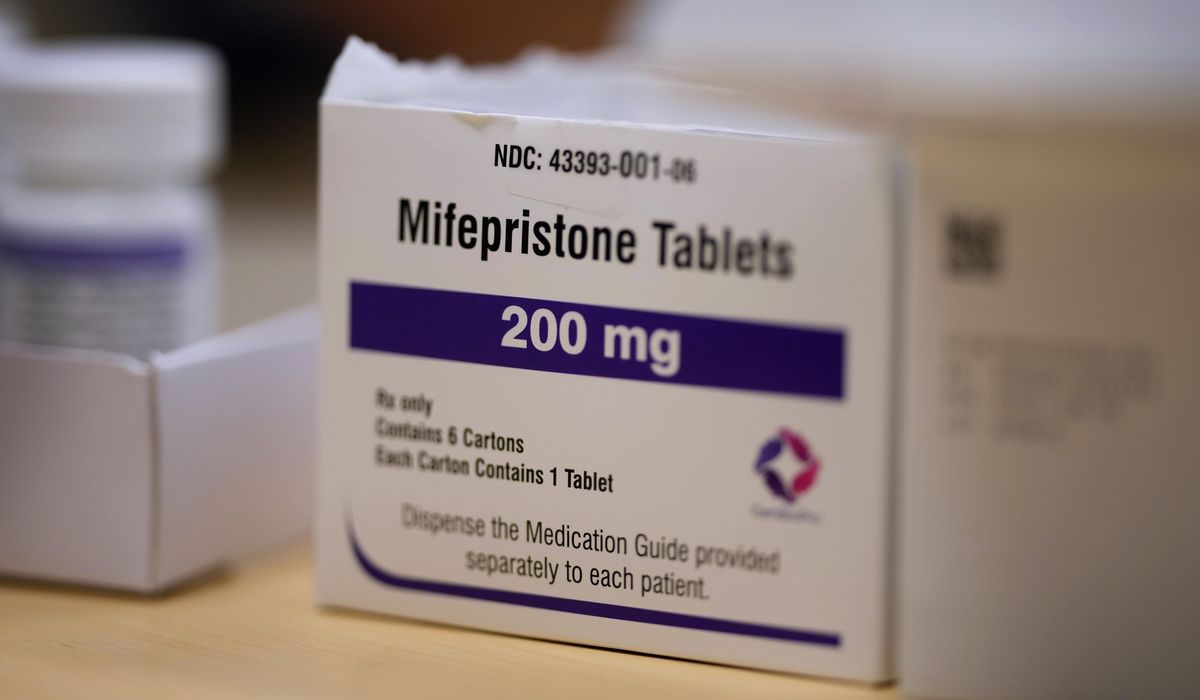


Trump administration policies blocking federal funding for abortion have left advocates on both sides of the issue wondering if federal restrictions on mail-order pills are coming next.
President Trump has issued executive orders that bar organizations such as Planned Parenthood from using taxpayer dollars to promote or perform abortions overseas; enforce the Hyde Amendment, a 1977 ban on federal dollars for abortions; and scale back enforcement of a 1994 law against people protesting abortion outside of women’s health clinics, among others.
“We applaud the administration’s strong start and are particularly grateful to see an end to U.S. taxpayer funding of abortions domestically and overseas,” said Jennie Bradley Lichter, president of the March for Life. “The next step should be protecting women from the dangers of the chemical abortion pill, which would be consistent with this administration’s goal of keeping the wellbeing of the American people always at the forefront.”
And Mary Ziegler, a leading historian of the legal abortion debate, noted that Mr. Trump’s recent actions have not gone beyond what other Republican presidents have done.
“If you were putting odds on it, I’d be a little surprised if the Trump administration enforced the Comstock Act, because there are clear political pitfalls there,” said Ms. Ziegler, a law professor at the University of California, Davis.
The Comstock Act of 1873 is a federal law against transporting obscene materials. Pro-life attorneys have cited it in recent legal appeals to stop abortion pills from crossing into conservative states.
Policy experts interviewed by The Washington Times noted that pills are increasingly responsible for most abortions nationwide, especially in states restricting the procedure since the high court’s ruling.
“I don’t know what the Trump administration will do,” said Rep. Chris Smith, New Jersey Republican and a longtime abortion foe. “My hope is that they will really, aggressively investigate it and require adverse events to be reported.”
Mr. Smith also said abortion pills are “baby poison.”
So far, Mr. Trump has shown no interest in restricting pills from crossing state lines.
“The big question is whether he agrees to roll back [federal] approval for mifepristone,” said Josh Blackman, a constitutional law professor at South Texas College of Law in Houston. “And does he authorize Comstock Act prosecutions?”
Medication abortions, also known as chemical abortions, involve a two-drug regimen of mifepristone and misoprostol. The pro-choice Guttmacher Institute estimates that the regimen was used in 63% of abortions reported in the U.S. in 2023, up from 53% in 2020 and 24% in 2011.
The Times reached out to the Trump administration for comment.
In a poll last month, left-leaning PerryUndem found that 47% of voters in November’s presidential election did not expect Mr. Trump to “use Comstock to ban abortions” through the mail, including 78% of Trump voters but just 17% of Kamala Harris voters.
The poll also found that 71% of voters opposed the Trump administration banning telehealth visits for abortion pill prescriptions and 67% favored leaving the decision to have an abortion “to the person and their doctors.”
“Data suggest that recent restrictions have made a majority of voters, including almost a third of anti-abortion voters, think about wanting the government to stay out of abortion decisions altogether,” said Tresa Undem, a PerryUndem pollster.
Some pro-life activists say the Trump administration’s actions on abortion do not go far enough to end the practice.
“Chemical abortion drugs are recklessly and illegally being sent to women and girls through the mail without any in-person doctor visits,” said Erik Baptist, director of the Center for Life at Alliance Defending Freedom, a conservative Christian legal advocacy group. “We hope and expect President Trump will address these Biden-era actions and protect as many innocent lives as possible.”
But Ms. Ziegler said pro-lifers will likely get little from Robert F. Kennedy Jr., Mr. Trump’s health secretary nominee who pledged in a Senate confirmation hearing last week to study the safety of abortion pills.
“You could read it as the Trump administration buying off pro-lifers by looking into it indefinitely without doing anything,” she said.
Not all pro-life groups have called on the president to restrict abortion pills.
Rebecca Weaver, director of advocacy and policy for the American Association of Pro-Life OBGYNs, said her advocacy group plans “to focus mostly on state-level policy.”
“Some of our state and national policy priorities include strengthening protections for medical professionals’ conscience rights, improving abortion data collection, advancing maternal health outcomes, and supporting pregnancy resource centers,” Ms. Weaver said.
• Sean Salai can be reached at ssalai@washingtontimes.com.
